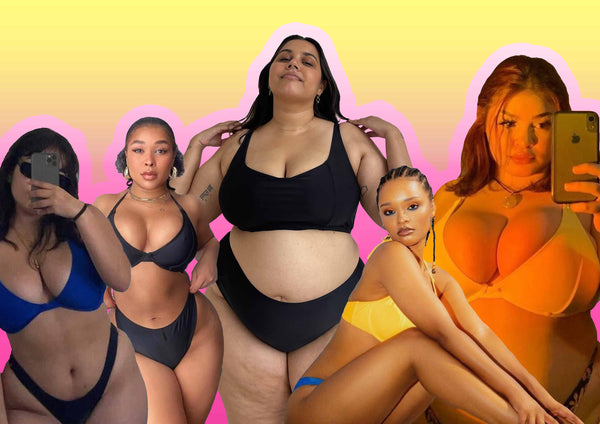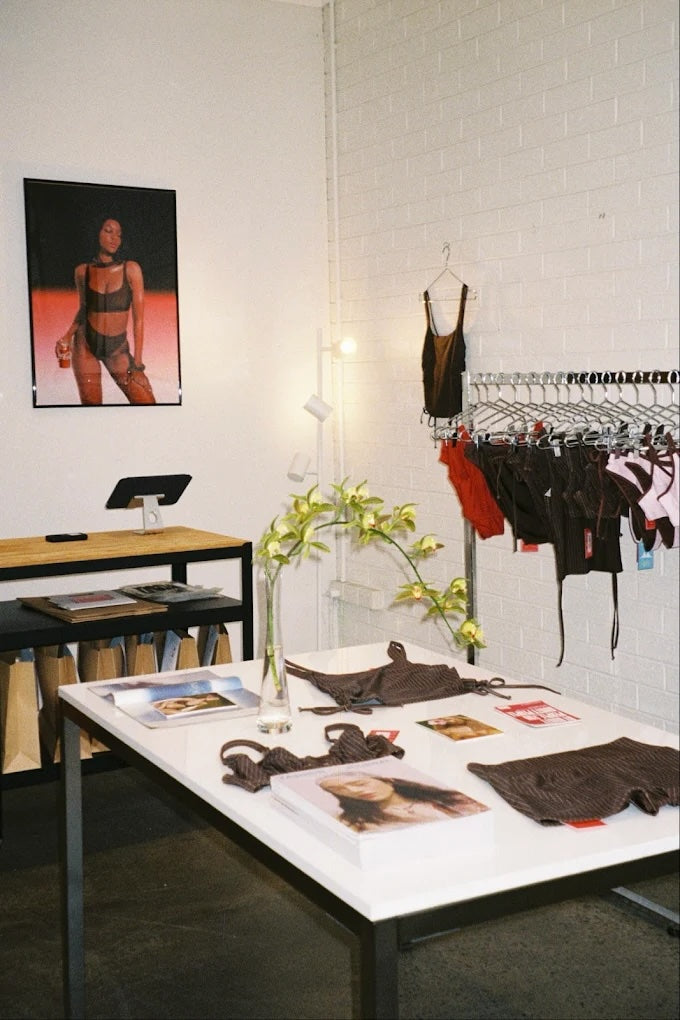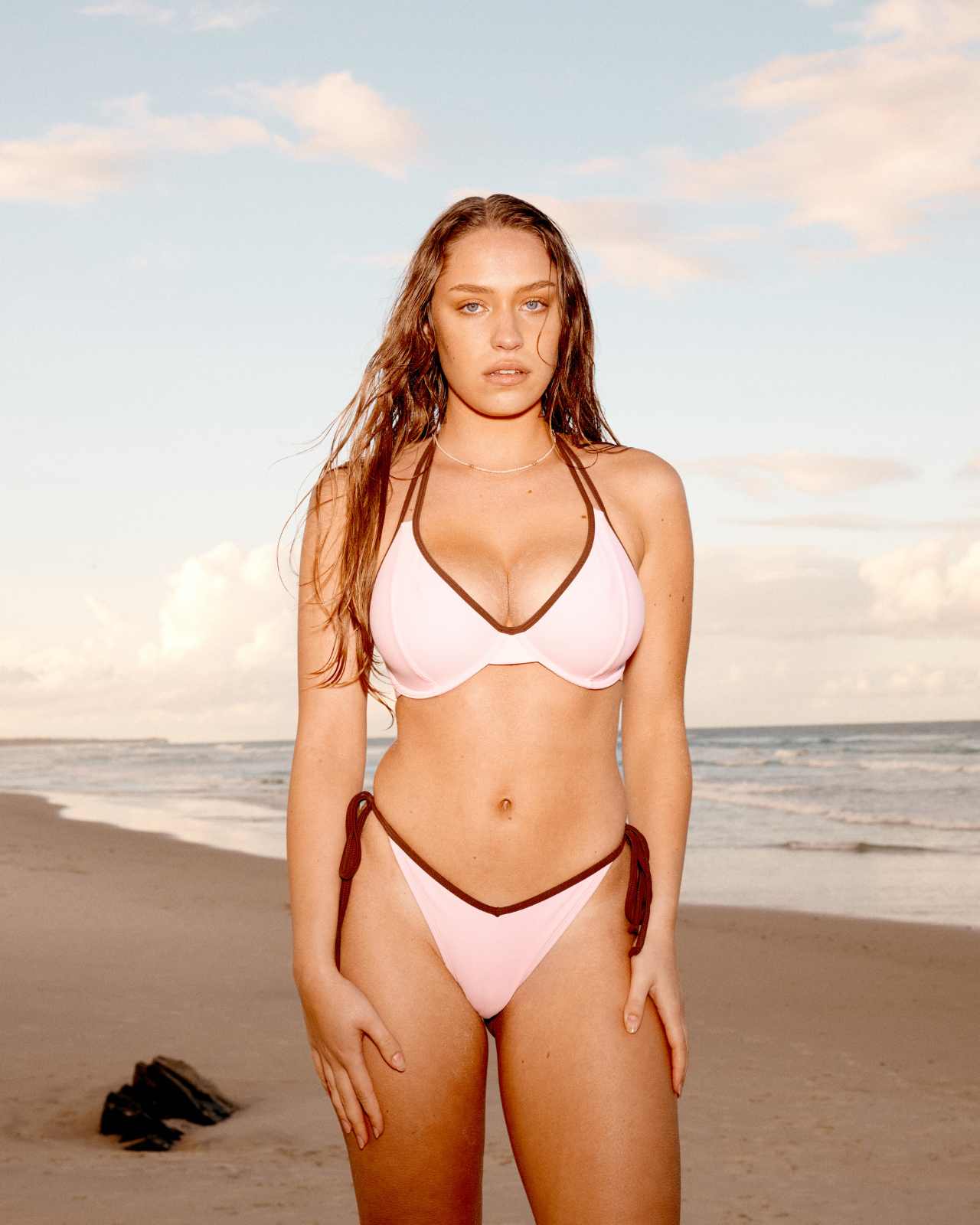Does the body positivity community exclude big boobs?

By Jasmine Wallis
Over the past few years, the body positivity space has made huge changes for society. From improving the sizing of clothes to more diverse bodies both in the media and on runways, it seems like we’re living in a very different world from the thin beauty ideals of the early 2000s. I mean, who could forget those Lindsay, Paris and Nicole tabloids?
With brands like Victoria Secret rehauling their image to include women of colour (and women above a size 0) it’s amazing to see so much progress. But despite all of the hard work, I have to ask; is the body positivity movement excluding big boobs?
This thought came to me recently as I was reading a news story over my Sunday coffee. It was referencing the very same themes as above, a new lingerie brand that catered to “all bodies”. The models were of all different ethnicities and shapes; a size 10 to a size 18 but my heart sank as the brand noted their bra sizing. A measly 12E. I’d spent the article hopeful, eyes glimmering at another fashion brand taking matters into their own hands and creating underwear for “every body”. But it excluded mine, and many other women’s bodies.
(Not The) Best Of Both Worlds
Having big boobs is a double-edged sword. Thanks to movies, media and TV, having larger than average breasts means you’re automatically sexualised. Before you even grow into your blossoming chest or have had your first kiss. The world automatically assumes you’re a confident, sexual being.
This is incredibly dangerous, as young women are exposed to situations that may make them feel uncomfortable... or worse. I’m sure many of us remember wolf whistles in our school uniforms, or being slut shamed by boys who thought they had immediate access to our bodies, simply due to the amount of breast tissue we developed.
At the same time, the fashion world excludes us through not making inclusive sizing, assuming that women with big boobs must be large in size everywhere else, or only designing for older women; all floral prints and dowdy colours.
We are simultaneously desired and excluded.
And the body positivity space is part of the problem; you’re either expected to love your big boobs all.the.time (yes, even when they’re sore from your period) or we’re not even mentioned (society rewards big boobs so what do we have to complain about, right?).
The original body positivity movement (before it was co-opted by capitalism and slim, white people) was created by and for marginalised bodies, in particular Black, queer, fat and disabled bodies. While the body positivity movement has made great progress for society since its inception during the 1960s, as it becomes more of a marketing buzzword are we actually moving past the need for it?
Body Neutrality
Radical self-love has done wonders for thousands upon thousands of women but one notion that may help us more as we enter a new decade and culture is body neutrality.
Described as the idea that “you can exist without having to think too much about your body one way or another, positive or negative”, body neutrality may be a way to accept our bodies as they are. You don’t have to be “in love” or “obsessed” with your big boobs in the same way that the body positivity community promotes.
Expecting us to be super enthusiastic about heavy tissue that’s permanently attached to us isn’t healthy, in the same way that being happy all of the time leads to toxic positivity.
Being a woman with big boobs is tough. Society expects you to be stoked with your luck, while other days the latest trend not fitting you, or not being able to find supportive swimwear eats you up inside, manifesting as low self-esteem.
It’s tricky, but hopefully, we can all find a bit more body neutrality inside of us, remembering that sometimes it’s okay to be happy with your body and other times not. There’s no right or wrong way to navigate our bodies under the ever-complicated, deep-seated beauty standards.
To learn more about Jasmine, this is the link to her website. You can also follow her on instagram at @jasmineeskye and @cultureclubpod.




















Comments
titterboy said:
i like em huge on da small ones
titterboy said:
i like em huge on da small ones
Nasir said:
Big boobs
Meg said:
Yes! This is so true.